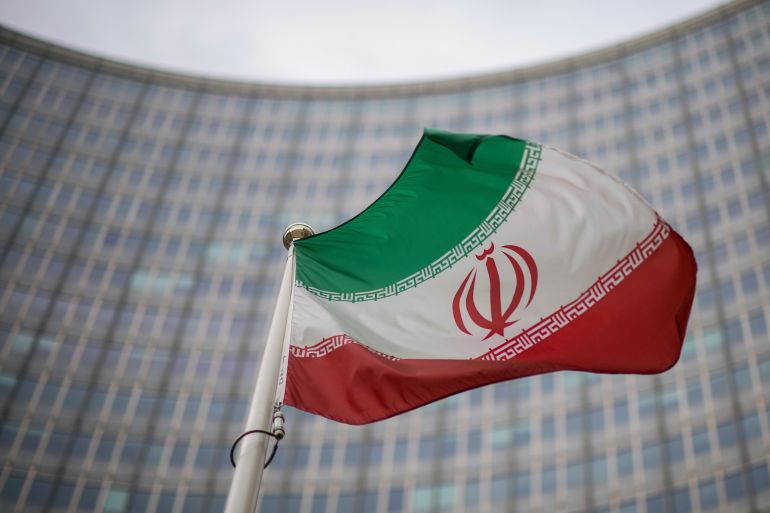Iran reviewing US nuclear deal response as Qatar mediates
Media outlet affiliated with Iran’s security apparatus signals an Iranian response is not expected until Friday at least.

Tehran, Iran – Iran says its review of the United States’s response to a European-Union drafted text to restore their 2015 nuclear deal will take several more days as Qatar continues to mediate between the sides.
Reviewing the US response at expert levels is ongoing and will take “at least” until the end of the week, Nournews, an outlet affiliated with the Supreme National Security Council of Iran, said in a tweet on Sunday.
Keep reading
list of 4 itemsIran blames ‘procrastinating’ US for nuclear deal delays
US says ‘encouraged’ by Iranian response to nuclear deal proposal
Iranian women allowed to watch football match after FIFA pressure
The working week in Iran ends on Friday, so a response appears unlikely before September 2.
Iran had sent its response to the European text earlier this month, and Washington submitted its own feedback to the text on Wednesday, more than a week after the Iranian response.
The EU’s foreign policy chief, Josep Borrell, has described both responses as “reasonable”, and said he plans to organise more meetings in Vienna to finalise an agreement if possible.
Meanwhile, Qatar – which hosted a two-day round of indirect talks between Tehran and Washington mediated by the EU in late June – has continued to mediate and relay messages between the sides.
According to the Qatari foreign ministry, Assistant Foreign Minister for Regional Affairs Mohammed bin Abdulaziz bin Saleh Al-Khulaifi met with Iran’s chief negotiator Ali Bagheri Kani in Tehran on Saturday to discuss the talks.
Al-Khulaifi “stressed the importance of advancing further in order to revive the nuclear agreement which is in the interest of the security and stability of the region”, a foreign ministry statement said.
The Qatari official then had a phone call with the EU’s Enrique Mora, who acts as the coordinator for the nuclear talks.
Iran did not report or comment on the meeting with the Qatari official.
The US unilaterally abandoned the Joint Comprehensive Plan of Action (JCPOA), as the deal is formally known, in 2018 and imposed harsh sanctions that are currently in effect.
In response, Iran ramped up its nuclear programme to its most advanced stages ever, but it has maintained that it is not seeking a nuclear weapon.
If an agreement is reached, hundreds of sanctions are expected to be lifted, and Tehran is expected to once more agree to curbs on its nuclear programme, including on enrichment and stockpiles of uranium.
Iranian and American officials have not officially commented on the specifics of the negotiations, but two outstanding issues are believed to have remained unresolved.
One relates to Iran’s demands for guarantees it will enjoy the economic benefits it was promised under the original deal, and the other relates to a standoff over unexplained nuclear particles found at several Iranian nuclear sites.
Last week, Rafael Grossi, the director general of the International Atomic Energy Agency (IAEA), repeatedly called on Iran to fully cooperate with the nuclear watchdog to resolve the issue of the nuclear particles that were discovered several years ago.
Iran has emphasised it wants the IAEA probe permanently closed before an agreement can be reached to restore the JCPOA.